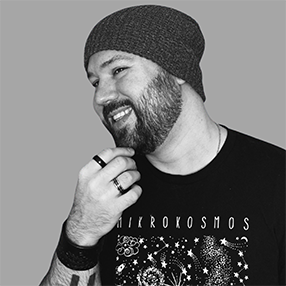When it Really is Just the Wind, and Not a Furious Vexation
We are preparing for the wrong disaster. —Chris Begley, The Next Apocalypse
The year I was born, the Soviet Union’s
early warning radar system malfunctioned,
reporting five intercontinental ballistic
missiles in flight: a preemptive nuclear
strike. You may have heard this story.
How a single lieutenant colonel dismissed
the signal as the false alarm that it was …
but had he made a different call
in that moment? Had he seen those five
ghost fingers as a fist? A mushroom cloud:
the most dangerous cliché. I hold it
in my hands on my fortieth birthday and
it becomes a bouquet: a thousand stems
leading to a thousand worlds in which cooler
heads did not prevail, to a thousand
alternate universe versions of me, born
in the year of the apocalypse. I see myself …
dead via radiation poisoning. Dead via
the shutdown of the supply chain, the failure
of the water system, the reemergence
of previously preventable diseases. Dead
in such manly ways: via an unlucky fall
in a fistfight over nothing. Via a scratch,
ignored and infected. I plucked petals, looking
for a version of me who survives. Hoping
to find that … you know: leather jacket,
black motorcycle, katana strapped to my back
version. That warrior poet, lone vessel of
vengeance, keeping the wasteland’s unending
tide of razor-clawed mutants at bay version.
All these dead worlds, and he isn’t out there.
All these visions of who I could have been,
and not a single hero: folk, super, anti
or otherwise. In one life, I wore a suit of armor
and drowned in the river. In one life, I hoarded
food and choked on it. In one life, the basement
was so full of boxes of bullets—a tornado came
and I had nowhere to go. No shelter. I emptied
clip after clip into the wind. All these dead
worlds, and we tell the same stories.
Which is not to say that I never survive. Just
that my survival, in every reality where it is
possible, never belongs to me. I see myself:
forty. Not a dual-wielding bandit warlord. Just a
neighbor, sitting in another endless community
meeting. And how many of our ancestors have
already taught us: even after the world ends,
there is work to do. I see myself in that work: not
the leader, not a lone wolf, just another part of the
pack. Because in every universe in which
I am alive, it is because of other people. And I
don’t always like them, but I love them. In every
universe in which I am alive, it is less because I
could fight, and more because I could
forgive. Because I could cooperate. Because
I could apologize. Because I could dance. Because
I could grow pumpkins in my backyard and leave
them at my neighbor’s door, asking for nothing in
return. In every universe in which I am alive, I am
holding: a first aid kit, a solar panel, a sleeping
cat. Never a rusty battle ax or rocket launcher—
sure, maybe sometimes a chainsaw, but only for
firewood. I am holding: a cooking pot, a teddy bear,
a photo album, a basketball, a bouquet of flowers.
Survival is not a fortress. It is a garden.
Survival is not a siren. It is a symphony. And
yeah, we fight for it sometimes, but survival is not
the fight. It is the healing after: the soft hum of
someone you trust applying the bandage, the
feeling of falling asleep in a safe place.
Copyright © 2024 by Kyle Tran Myhre. Originally published in Poem-a-Day on August 6, 2024, by the Academy of American Poets.
“I wrote this in early 2023, after reading archaeologist Chris Begley’s book The Next Apocalypse: The Art and Science of Survival, as recommended by Kelly Hayes’s Movement Memos podcast. It’s a book exploring who survives when societies go through periods of collapse. And as someone who does healthy masculinity work with young men, I found that question generative on both literal and metaphorical levels. The ‘furious vexation’ part of the title is referencing a line of dialogue from the film Mad Max: Fury Road, a second guiding star, in that the poem is grappling with dominant vs. counternarrative visions of apocalypse, masculinity, individualism, and beyond.”
—Kyle Tran Myhre

